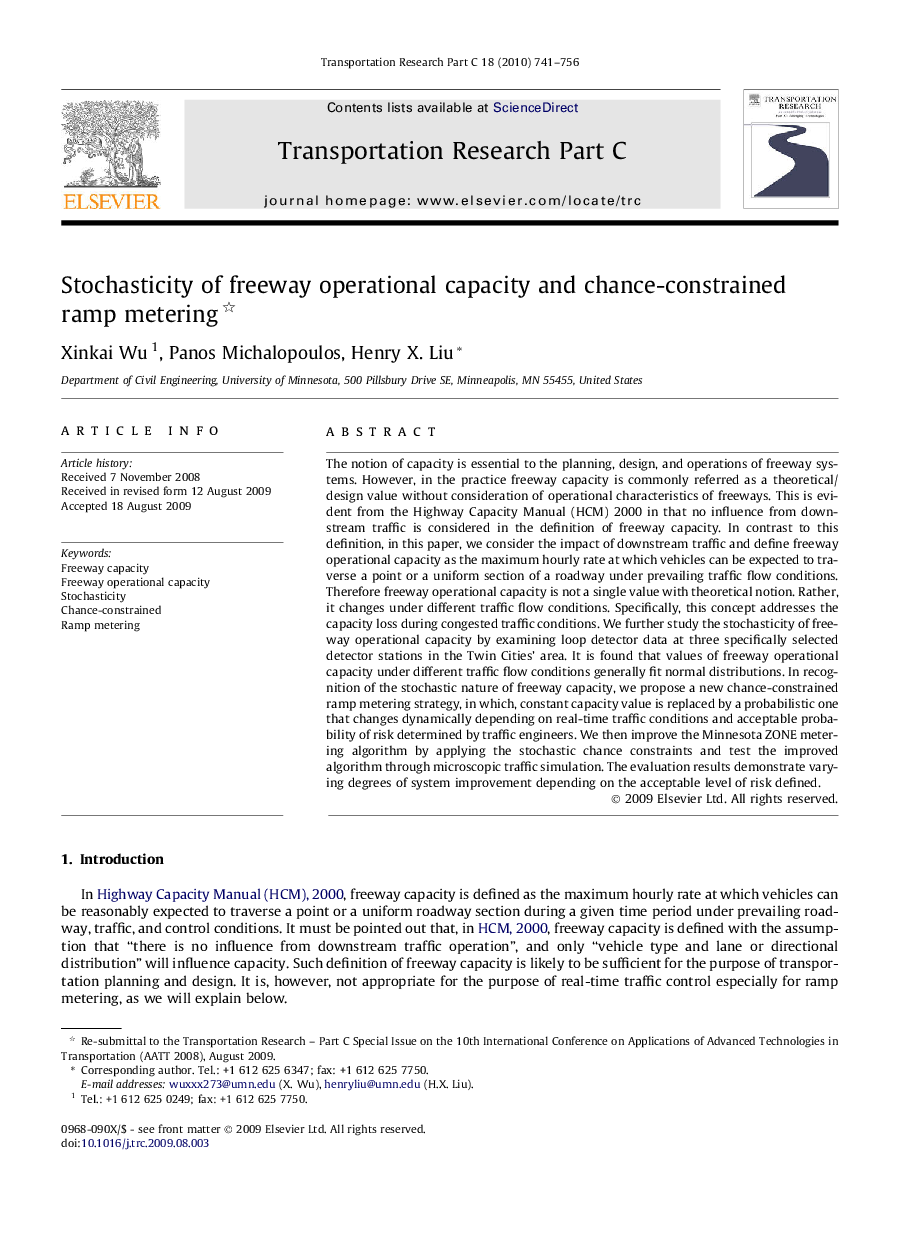| Article ID | Journal | Published Year | Pages | File Type |
|---|---|---|---|---|
| 525200 | Transportation Research Part C: Emerging Technologies | 2010 | 16 Pages |
The notion of capacity is essential to the planning, design, and operations of freeway systems. However, in the practice freeway capacity is commonly referred as a theoretical/design value without consideration of operational characteristics of freeways. This is evident from the Highway Capacity Manual (HCM) 2000 in that no influence from downstream traffic is considered in the definition of freeway capacity. In contrast to this definition, in this paper, we consider the impact of downstream traffic and define freeway operational capacity as the maximum hourly rate at which vehicles can be expected to traverse a point or a uniform section of a roadway under prevailing traffic flow conditions. Therefore freeway operational capacity is not a single value with theoretical notion. Rather, it changes under different traffic flow conditions. Specifically, this concept addresses the capacity loss during congested traffic conditions. We further study the stochasticity of freeway operational capacity by examining loop detector data at three specifically selected detector stations in the Twin Cities’ area. It is found that values of freeway operational capacity under different traffic flow conditions generally fit normal distributions. In recognition of the stochastic nature of freeway capacity, we propose a new chance-constrained ramp metering strategy, in which, constant capacity value is replaced by a probabilistic one that changes dynamically depending on real-time traffic conditions and acceptable probability of risk determined by traffic engineers. We then improve the Minnesota ZONE metering algorithm by applying the stochastic chance constraints and test the improved algorithm through microscopic traffic simulation. The evaluation results demonstrate varying degrees of system improvement depending on the acceptable level of risk defined.
